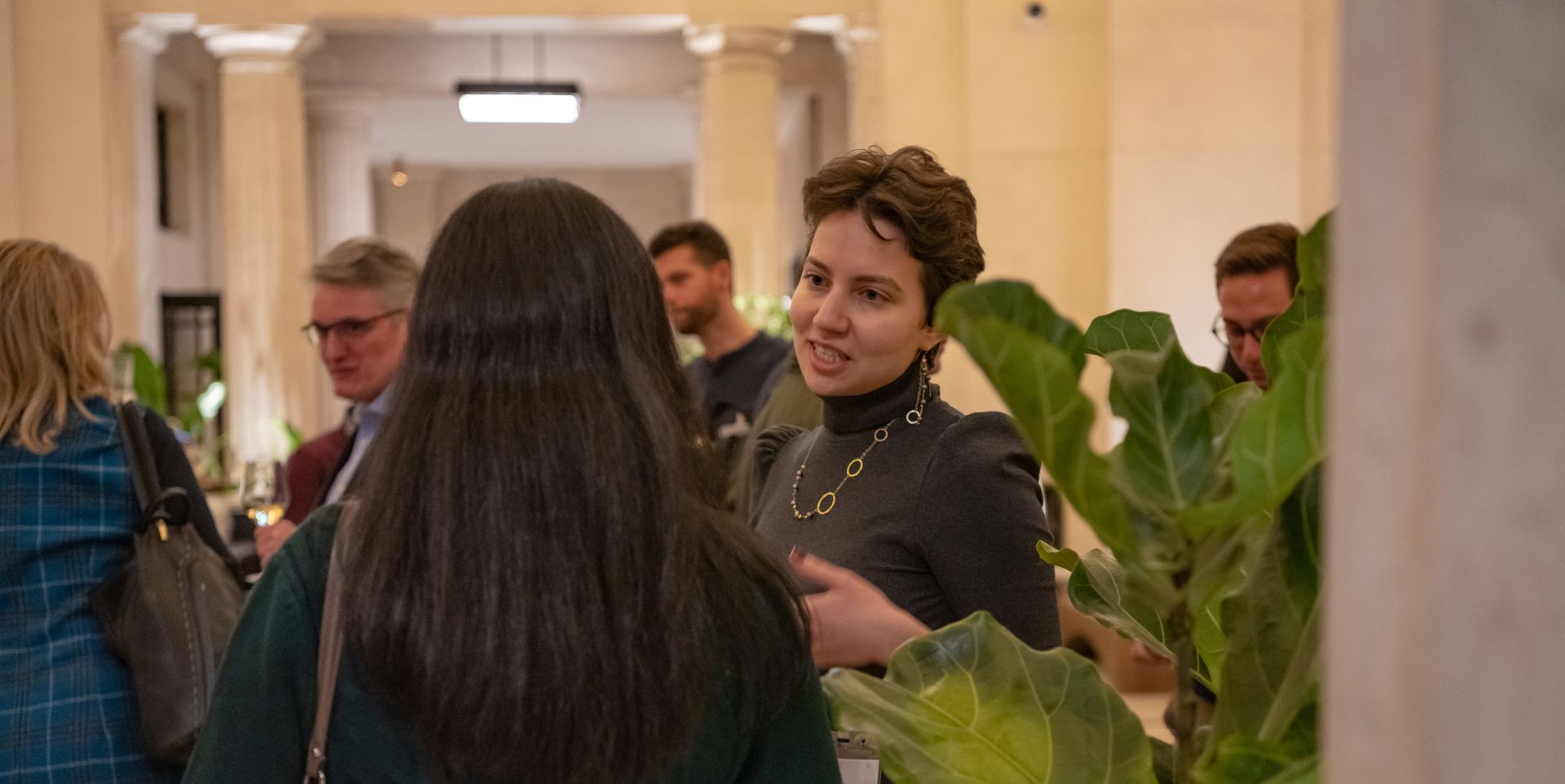The life sciences industry is dynamic, and being part of a robust professional network is a foundation to leverage such kinesis. Your network can be invaluable, with effective life sciences networking potentially leading to future collaborations, partnerships, and insight.
As the UK’s most sector-focused and connected life science ecosystem, Pioneer Group can help you access a field of sector-specific expertise. Entrepreneurs, investors, experts, academics, and industry associations come together at our locations. We act as a matchmaker, connecting entrepreneurs with questions and experts who have the answers, can open doors, make introductions and identify opportunities to help businesses thrive.
Using our expertise in connecting people, we’ve set out the following three-step guide on how to master life sciences networking.
Step 1: Set Objectives and Identify Key Contacts
Being a scientist means that, most of the time, you can work independently on your own research and to your own timelines. As such, it can be easy to assume that networking isn’t really for you. But, aside from collaboration being a key principle of the scientific method, career progress, advancement, and assistance can move swiftly with a strong network of life sciences professionals.
Indeed, scientists should seek to build relationships with other scientists and non-scientists in the sector from day one. Whether you’re a graduate wanting to transition out of academia and into industry, or perhaps you’ve been in a postdoc position for several years and are struggling to get another round of funding, your network will be a key resource to draw upon throughout your career.
What are your goals?
Before you start networking, it’s helpful to set your objectives. For instance, are you seeking research collaborators, investors, mentors, or potential clients? Knowing your goals will help guide your networking efforts.
Once your goals have been identified, you can begin researching and identifying key individuals and organisations in your field. Look for experts, thought leaders, and decision-makers in academia, research institutions, and like-minded companies.
Life sciences networking: not just a one-way street
We’d recommend connecting with and following these people and businesses on their social media platforms; not only can you stay up to date with their work, but people often share when they are planning on attending any industry events, so you know when you may have the opportunity to connect with them. Networking is not just a one-way street – consider customising your profile to highlight your expertise and goals so others can see the value in connecting with you.
As part of this initial step, we recommend joining relevant industry-specific associations and organisations. These groups often host events, webinars, and conferences that can facilitate networking.
Step 2: Engaging in Industry Events and Conferences

Attending industry events is a powerful way to expand your network while staying up to date on trends and advancements in the sector. Select events that align with your networking goals, such as scientific conferences, trade shows, and forums catering to your work area. As well as large-scale national and international conferences, local life sciences networking events, meetups, and seminars provide an excellent opportunity to meet people face-to-face and build relationships within your regional community.
What’s your elevator pitch?
Before attending any event, we strongly advise crafting a concise and compelling elevator pitch introducing yourself and your work. Be clear on what strengths, skill sets and connections you can offer. The most successful networkers build genuine relationships and go beyond thinking, “what’s in it for me?” and instead ask “How can I help?”
Do your research
Don’t forget to actively engage during sessions at the events you attend, whether through asking thoughtful questions or sharing your insight. Be prepared to listen to people’s problems, passions, and general interests and be open to discussing your own. Our top tip is to research event attendees before going to a conference, reference an accomplishment someone has made, and perhaps ask them a question about it.
Finally, remember to exchange contact information with those you meet and to follow up with people promptly after the event. Following event hashtags and taking part in online discussions related to the event can help you connect with attendees before, during, and after the event.
Step 3: Nurturing Lasting Relationships
Building a network is just the beginning; maintaining and nurturing lasting connections is the real challenge. Communicating regularly with your contacts is essential, providing updates on your work and inquiring about their projects.
Adding value to your network
Ultimately, providing long-term value will strengthen your relationships and build trust. You could do this by sending new contacts information about relevant funding opportunities you hear about, thought-leadership articles, or news relating to the latest developments in the sector that they might be interested in. If you’re proactive in offering assistance or sharing relevant resources with your network, chances are your connections will return the favour.
With an established network, you can explore collaborative projects, research, or partnership opportunities. Indeed, joint ventures are often crucial to expanding your network even further.
Maximise connections
Finally, don’t forget that any contact with whom you interact knows hundreds, if not thousands, of other people. This makes the power of people’s conversation exponential. When you’re talking to someone, remember you’re speaking to their entire network, so find out who they might be able to introduce you to, either in the room or in another context.
Life Sciences Networking at Pioneer Group
Mastering business networking in the life science industry is an ongoing process that requires consistency, authenticity, and a genuine interest in others. But it’s absolutely worthwhile. With time and dedication, your network will soon become one of the most valuable assets in your business.
Pioneer Group’s expert network is a powerhouse of esteemed figures from the world of life sciences who give their time, advice and guidance to the Pioneer Group Collective. Every connection between expert and entrepreneur is personally made. Our team has the technical, operational, and commercial expertise to truly understand the industry and the challenges which science entrepreneurs face.

Need help forging connections?
We connect entrepreneurs who have questions with experts who have the answers, through personal introductions in our network, and also through hosting live events.




